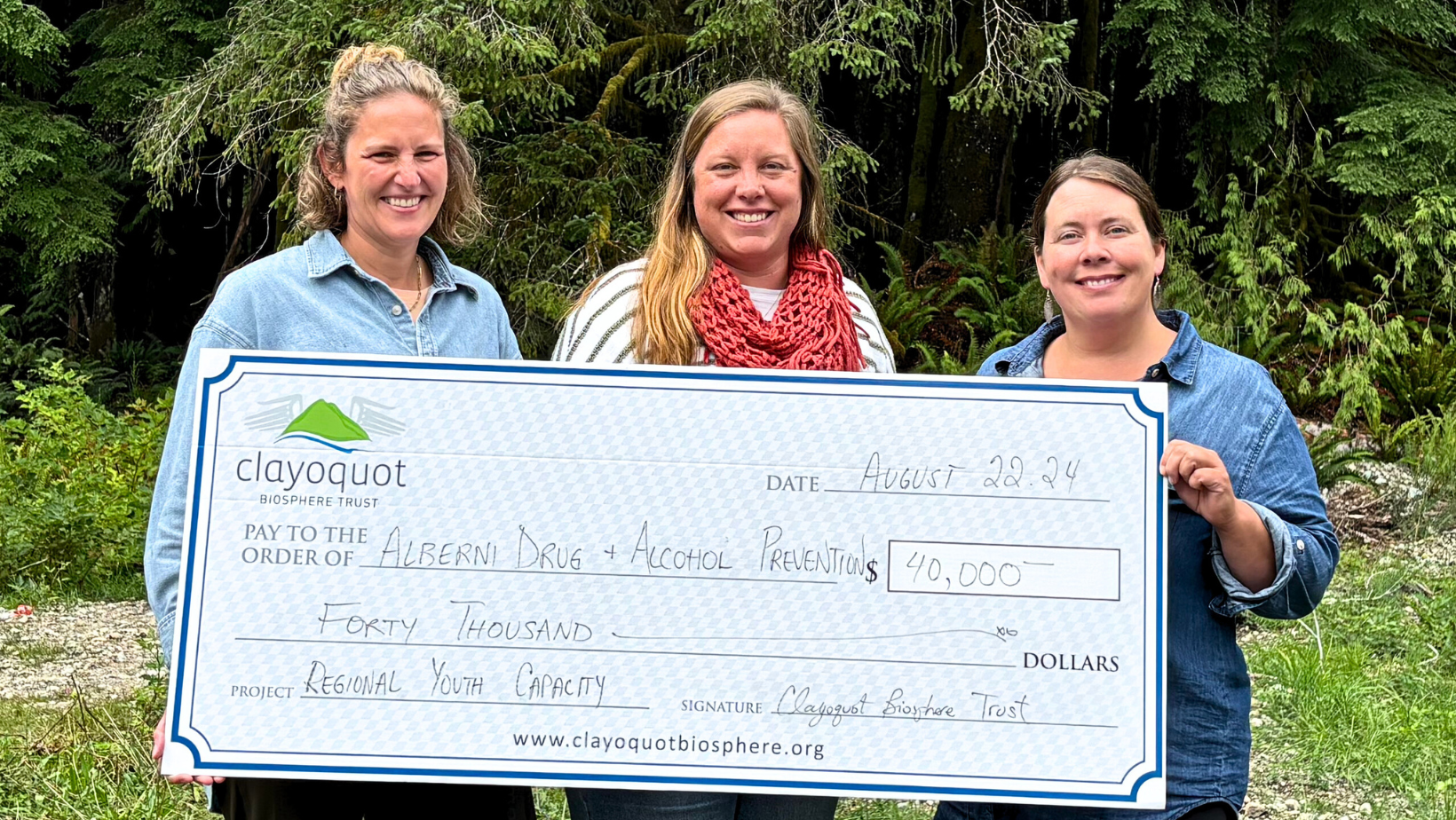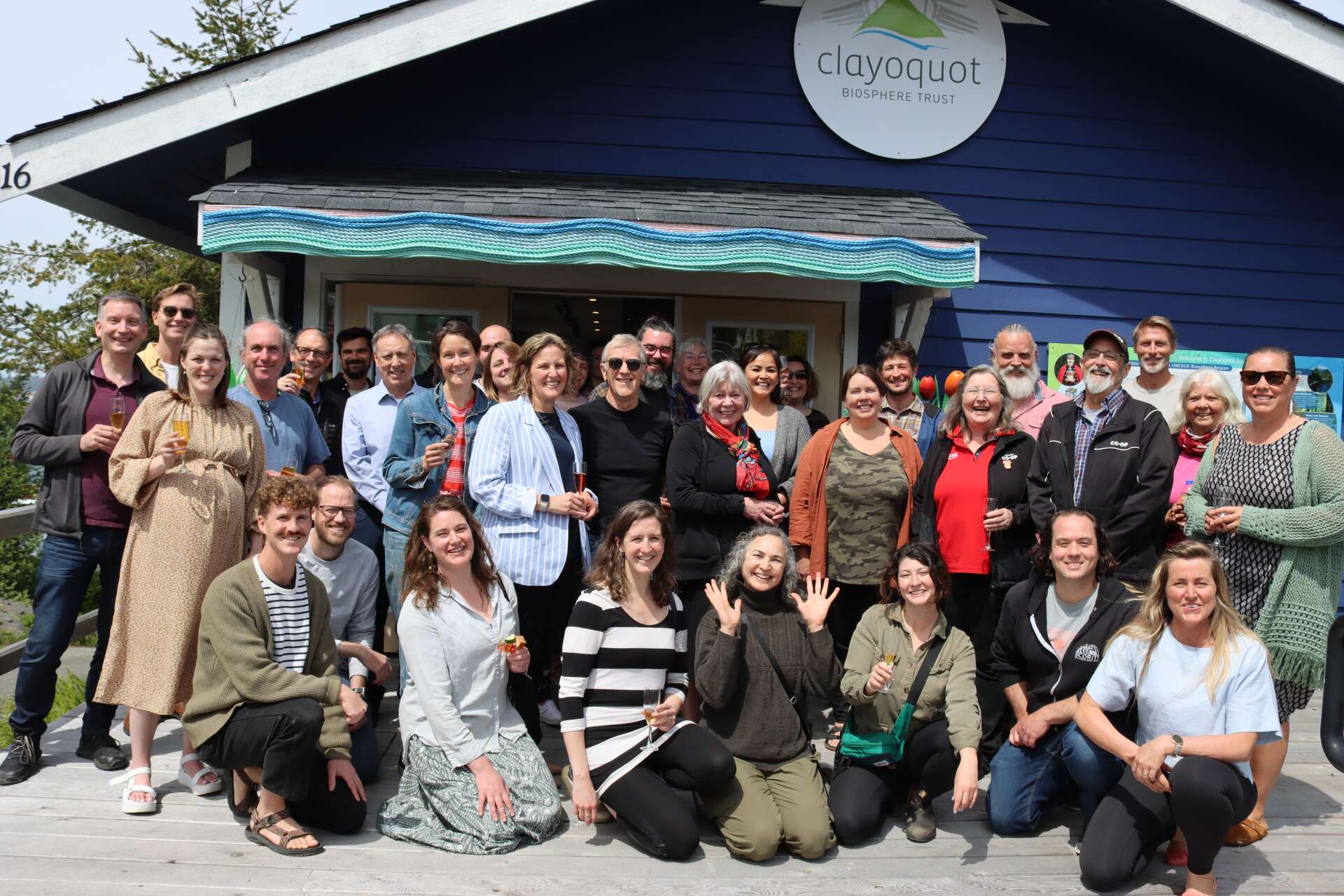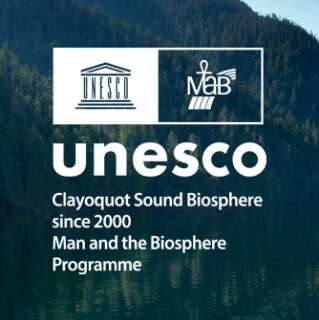Announcing the 2024 Vital Grants

We are pleased to announce the recipients of the 2024 Vital Grants. This year, the CBT awarded $80,000 in funding to three inspiring projects in the region.
These grants focus on addressing regional priorities and complex challenges that influence sustainability in the Clayoquot Sound Biosphere Region. They also aim to support meaningful, longer-term collaboration between organizations, communities, and cultures.
We truly appreciate the efforts of the Vital Grants Advisory Committee, comprised of dedicated local volunteers, for their time and efforts to review each application. We also would like to thank the West Coast Sustainable Tourism Association for helping fund the Child Youth Grief Counselling and Education project. To learn more about the other projects they supported in the region, visit their website at https://wcsta.ca/projects.
To learn more about any of the projects below, or connect with project leaders, email brooke@clayoquotbiosphere.org.
2024 Vital Grant Projects
West Coast Youth Facilitator Role – Alberni Drug & Alcohol Prevention
The primary goal of this project is to establish a regional youth facilitator role dedicated to addressing youth priorities in the region. This position will fill a crucial gap, allowing for a cohesive, long-term strategy to tackle regional youth issues, secure partnerships, advocate for needs, and apply for funding. Additionally, the project aims to develop the Safe Spaces program, create tailored youth spaces in each community, and continue the Students of Leadership group, fostering youth engagement and leadership. Key outcomes include a sustained role in addressing youth priorities, organized strategies for regional youth issues, safe spaces in all communities, increased youth advocacy, strong youth-driven initiatives, improved communication among youth-serving organizations, and increased funding for youth services and programs. This project is getting multi-year funding of 20,000/year for two years.
Child Youth Grief Counselling and Education – Pacific Rim Hospice Society
In September of 2023, out of one class of 25 students entering Grade 8, 13 of them had lost a parent or sibling in the past two years. While there are support staff and counselors available to students, a grief counselor will provide outreach that will be the most beneficial. The funding for this project will be to support and hire a Registered Clinical Counsellor, followed by orientation and training over the summer to prepare for school educational workshops and program advertising. From September to June, the counselor will promote programs, build relationships with school staff and students, and provide one-on-one and group grief counseling and support. Educational workshops on grief literacy will be offered in schools, with online options for homeschooled students. The project will also implement a peer education program at least once a year and support school staff and families with guidance and resource navigation as needed.
Kakaw̓inminḥ Group - Yuulu?il?ath Government
The Kakaw̓inminḥ Group unites girls, nieces, aunties, mothers, grandmothers, and knowledge keepers from Yuulu?il?ath (Ucluelet First Nation) and neighboring Nations to share and learn traditional practices. The program focuses on mentoring relationships, where everyone can learn from elders and knowledge keepers about traditional practices such as gathering and harvesting. For example, an Elder might teach us how to harvest grasses sustainably for making traditional baskets. Language teachings are incorporated throughout each activity, with staff from the culture and heritage department teaching the traditional names of grasses and other terms during the process. Following the seasons, the program focuses on cultural activities like preparing traditional foods, creating regalia, and making drums. The goal is to re-indigenize and reclaim Yuułuʔiłʔatḥ culture and language, weaving these elements into every session. Open to girls, women, and two-spirited individuals aged 10 to 40, the group encourages participation from mothers with children and welcomes Elders to join. This approach helps decolonize by re-indigenizing and teaching the younger generation the protocols and language that the older generation might not have been able to learn.

